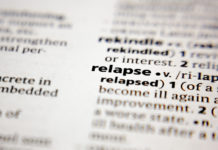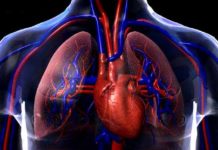Claims That Long-term Antipsychotic Use Leads to Better Outcomes are Misleading, Researchers Argue
Researchers reveal the limitations and misleading interpretations of two recent studies that claim to demonstrate that long-term antipsychotic use leads to better outcomes.
New Review Suggests Higher Recovery and Remission Rates for Psychosis
Meta-analysis gives updated recovery and remission rates for persons identified as having a first-episode psychosis and those diagnosed with schizophrenia.
Study Connects Environmental Risk Factors and Psychosis
A meta-analysis of known risk factors for psychosis finds elevated risk with the presence of childhood trauma, adverse life events, and affective dysfunction.
Outcome Reporting Bias in Antipsychotic Medication Trials
A new study in the journal Translational Psychiatry, an influential journal in biological psychiatry published by Nature, challenges the state of the research on antipsychotic drugs.
Valuing Posttraumatic Growth in Psychosis
Individuals who experience psychosis can also experience posttraumatic growth, which can be a central component of the recovery paradigm.
Childhood Victimization Connected with Experiences of Psychosis
Childhood victimization associated with experiences of psychosis later in life, and in persons without childhood victimization, there is a bidirectional association between psychosis and adult victimization.
“Treatment Resistant” Schizophrenia Strongly Linked to Dopamine Supersensitivity
Over 70% of schizophrenia patients who are "treatment resistant" have apparently developed dopamine supersensitivity psychosis from long-term use of antipsychotic medications.
The Dopamine Hypothesis of Schizophrenia – Version III
The Division of Clinical Psychology of the British Psychological Society published a paper titled Understanding Psychosis and Schizophrenia. The central theme of the paper is that the condition known as psychosis is better understood as a response to adverse life events rather than as a symptom of neurological pathology. The paper was wide-ranging and insightful and, predictably, drew support from most of us on this side of the issue and criticism from psychiatry. Section 12 of the paper is headed "Medication" and under the subheading "Key Points" you'll find this quote: "[Antipsychotic] drugs appear to have a general rather than a specific effect: there is little evidence that they are correcting an underlying biochemical abnormality."
Parachute NYC Peer Support Program Presents Challenges and Opportunities
Anthropologists study Parachute NYC to identify challenges and opportunities for implementing peer support and Open Dialogue practices.
What Are Best Practices For Psychosis And What Gets In The Way?
Research investigates clinicians’ perspectives on best care practices and the complicated realities of providing care in the face of agency limitations and mechanized interventions.
Psychologists Push For New Approaches to Psychosis: Part 2
The authors of the report expand upon the traumatic and sociopolitical factors underlying presentations of psychosis and “schizophrenia.”
“Singulair, Montelukast: Asthma Medication Linked to Serious Psychotic Episodes in Children”
ABC News reports on almost 90 cases of children experiencing suicidal thoughts and other psychiatric side effects while taking the common asthma medication Singulair....
Mental Illness, Right & Wrong, Drugs, and Violence
The recent incident in the grounds of Washington Capitol, involving a young educated woman, brought shock to many people. It was another opportunity to blame a victim of mental illness and demand further restraint and medical attention for such individuals. Yes, we are lacking dignified, caring, discerning and attentive treatment for those whose spirits are broken. But we certainly don’t suffer from a lack of medical treatment for such individuals. It is time for policy-holders, and our scientific community to ask the 'heretical' question; “Could the drugs be the culprit behind the violence?”
New Research on Patient-Centered Deprescribing for Antipsychotics
Researchers review the risks and benefits of deprescribing from antipsychotic drugs and advocate for a patient-centered approach to tapering.
Half of First-Episode Patients Respond to Antipsychotics
No placebo controlled trials provide evidence of antipsychotics in first-episode psychosis.
What Does ‘Relapse’ Mean? Definitions Used in Antipsychotic Trials Are Unclear
Antipsychotic drugs are prescribed on the basis of trials that demonstrate a higher rate of ‘relapse’ in people who are withdrawn from these drugs compared to those who continue to take them. Yet, incredibly, there is no consensus about what ‘relapse’ means in this situation.
New Review of Antipsychotics for Schizophrenia Questions Evidence for Long Term Use
A systematic review of the limited research available on the long-term effects of antipsychotics finds fewer symptoms in those off of the drugs.
Exploring Alternate Pathways to Voice-Hearing
Authors propose various pathways to the phenomena of voice-hearing in clinical and nonclinical populations.
Robert Whitaker Missed the Mark on Drugs and Disability: A Call for a Focus...
Robert Whitaker extended one of his core arguments from Anatomy of an Epidemic in a blog post last week. His argument revolves around the claim that psychiatric drugs are the principal cause of increasing psychiatric disability, as measured by U.S. social security disability claims. But does this really explain the rise in recipients of these SSI & SSDI benefits?
Study Finds Connection Between Trauma and Psychosis in Children
Researchers connect the impact of early trauma to the development of psychosis in children as young as 7 years old.
Quotations From the Genetics “Graveyard”: Nearly Half a Century of False Positive Gene Discovery...
In a 1992 essay, British psychiatric genetic researcher Michael Owen wondered whether schizophrenia molecular genetic research would become the “graveyard of molecular geneticists.”1 Owen predicted that if major schizophrenia genes existed, they would be found within five years of that date. He was optimistic, believing that “talk of graveyards is premature.”2 Owen now believes that genes for schizophrenia and other disorders have been found, and was subsequently knighted for his work. Despite massively improved technology, however, decades of molecular genetic gene finding attempts have failed to provide consistently replicated evidence of specific genes that play a role in causing the major psychiatric disorders.
Study Highlights Importance of Social Interactions in Psychosis Recovery
Study finds frequency of social interactions predicts long-term remission in first-episode psychosis.
Patients on Antipsychotics at High Risk for Cardiovascular Issues, Study Finds
Antipsychotics present a known risk for major side effects. A new study suggests that certain antipsychotics may present a greater risk for cardiovascular disease than others.
My Mysterious Son
In the autumn of 1996, my son was seventeen when he told me one day on the way home from school: “I don’t know what’s happening, I can’t find my old self again.” He’d had a seemingly marvelous summer staying with family in Mexico, fishing and learning to surf. He’d achieved nearly a full scholarship for his junior year at a Boston private school. However, one teacher had observed that, in class, he “sometimes seems to be out of touch and unable to focus his mind.”
Individuals with Psychosis Symptoms More Likely to be Victimized
Individuals diagnosed with a psychotic disorder are 4-6 times more likely than the general population to experience victimization.



























